Petulia (1968)
“I’m trying to save you, Archie — you’re a very, very special man.”
|
Synopsis: |
|
Genres, Themes, Actors, and Directors:
Response to Peary’s Review: He elaborates on his analysis in both GFTFF and his Cult Movies book, noting that “the great American tragedy is that a country founded by a resourceful, enterprising, responsible people of high values and ideals” (well… for a select few) “has become so utterly wasteful of money, time, human life (Vietnam is ignored by a desensitized nation), and human potential,” with “America’s institutions — the army, hospitals, prisons — … as impotent as David [Chamberlain] is in bed.” He points out that “even marriage is a casualty of the modern age: boredom is an adequate reason for a man to leave his wife; a battered wife is no longer required to stay with her husband” — and with “America… spinning too fast, there is no solid footing” yet “there stands Petulia, symbol of the shaky times: mini-skirted, on wobbly legs,” with a “stoical” face “but her eyes indicate she has lost something irretrievable and sees a road downhill to oblivion.” Peary’s analysis is a fascinating one, but presumes one will read quite a bit of depth into this array of messed up protagonists. My own take is a little different: from the film’s opening sequence at a fundraising gala — interspersed (as is the rest of the movie, with cryptic flashbacks and flashforwards) — we can tell that this is a (high) society trying desperately to “have fun” and stay lighthearted, all while floating semi-ridiculous hairdos and automated systems that appear to be from a different era altogether. (Indeed, I wondered at first if this movie takes place in a dystopian sci-fi future, though that doesn’t appear to be the case.) Christie’s “Petulia” is an obnoxiously flitting female, someone it takes a while to warm to given her push-and-pull tendencies. Once we learn more about the truth of her marital situation, we begin to have some measure of compassion — though the storyline is ultimately too oblique to allow for deep empathy, and we end up focusing more on the inevitable role played by Big Money and those in power, who will do whatever it takes to maintain a desired façade. Peary points out that the “picture has many great scenes,” with “perhaps the most memorable [being] Archie’s argument with ex-wife Polo (Shirley Knight)”: … and he notes that the movie is “technically interesting,” with a “fragmentary filmmaking” style that “is characteristic of both Lester and cinematographer Nicolas Roeg, who would soon be a director himself.” While this quirky film won’t resonate with all viewers (it’s not a personal favorite), it should be seen at least once to check it out. Note: Watch for a brief singing cameo by Janis Joplin with Big Brother and the Holding Company at the film’s opening party sequence. Notable Performances, Qualities, and Moments:
Must See? Categories
Links: |
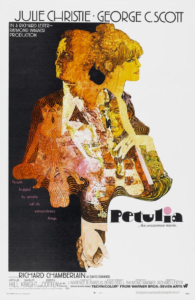
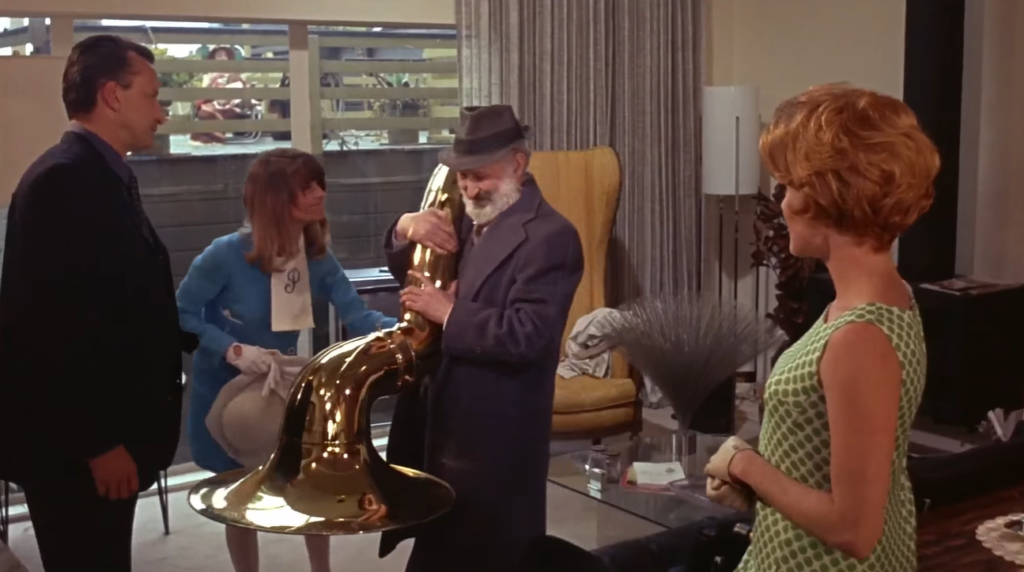
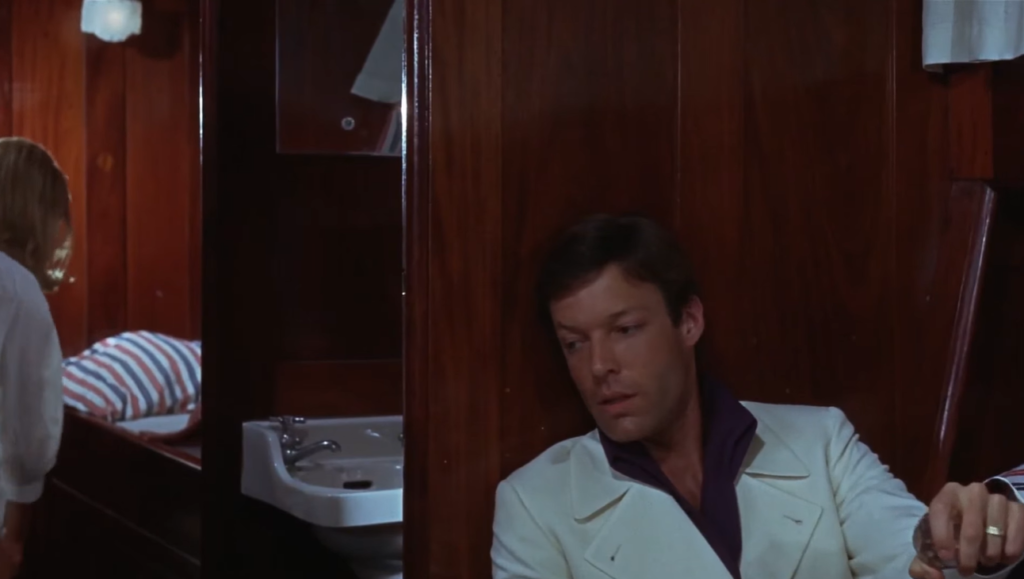
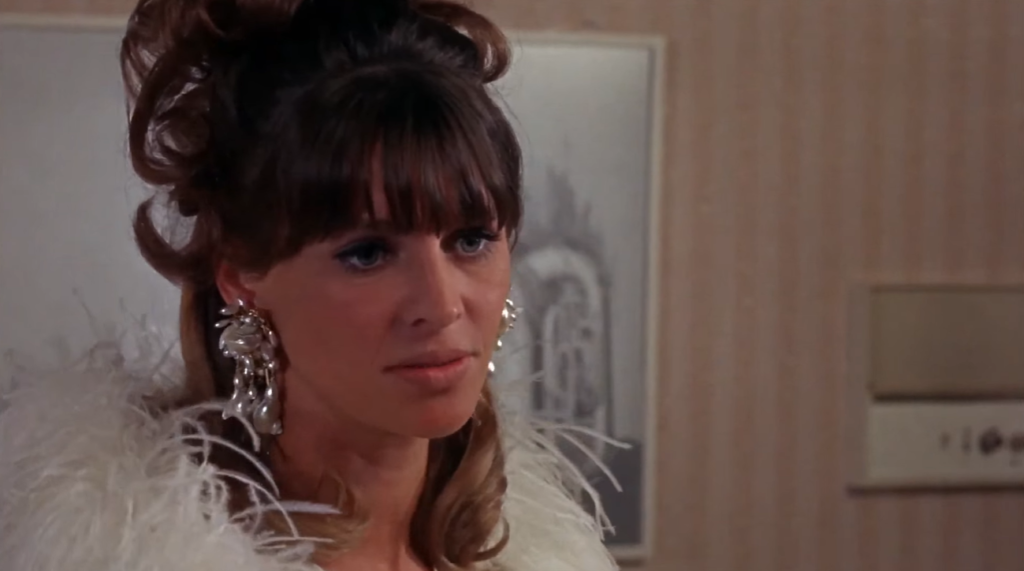
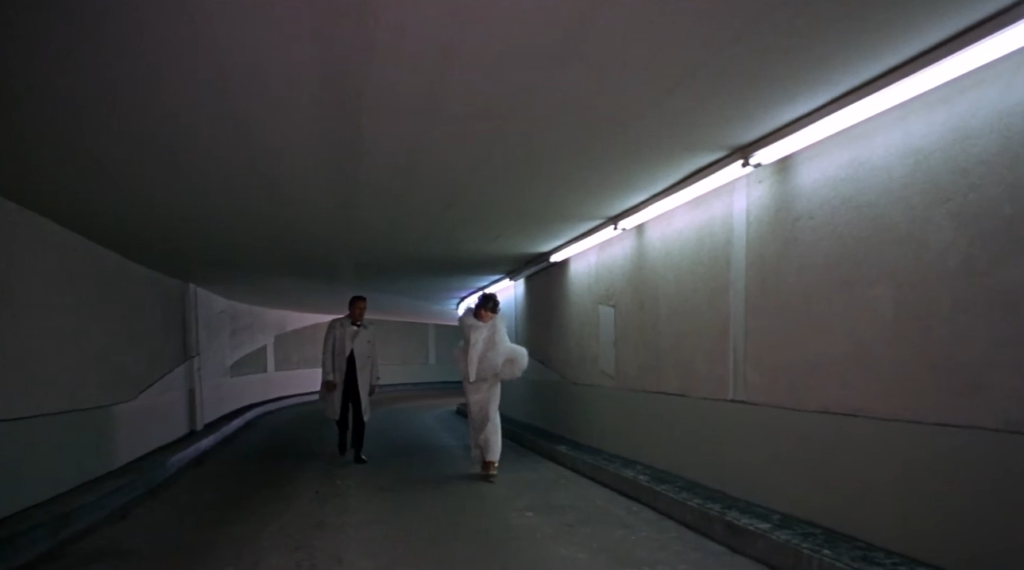
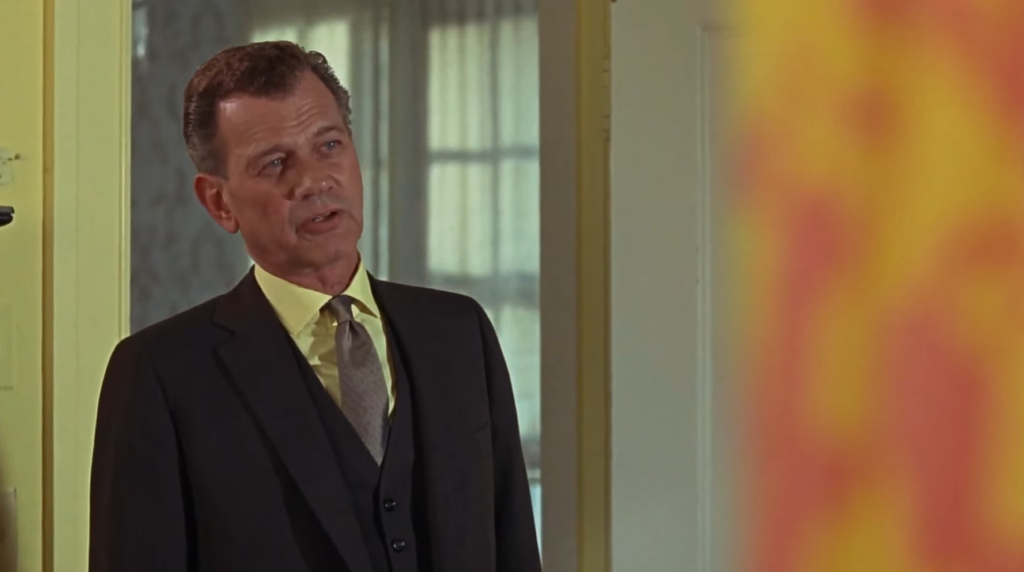
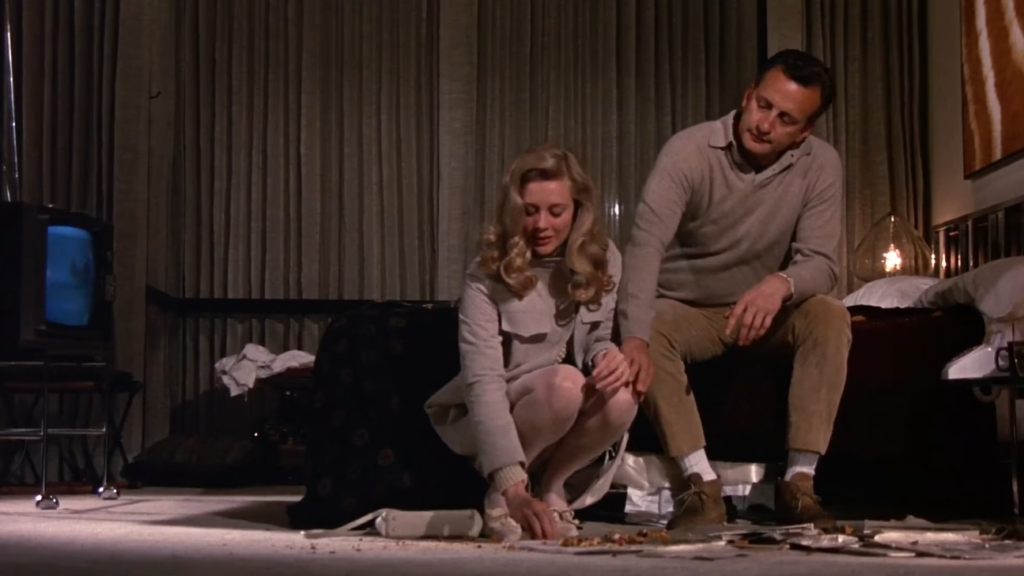
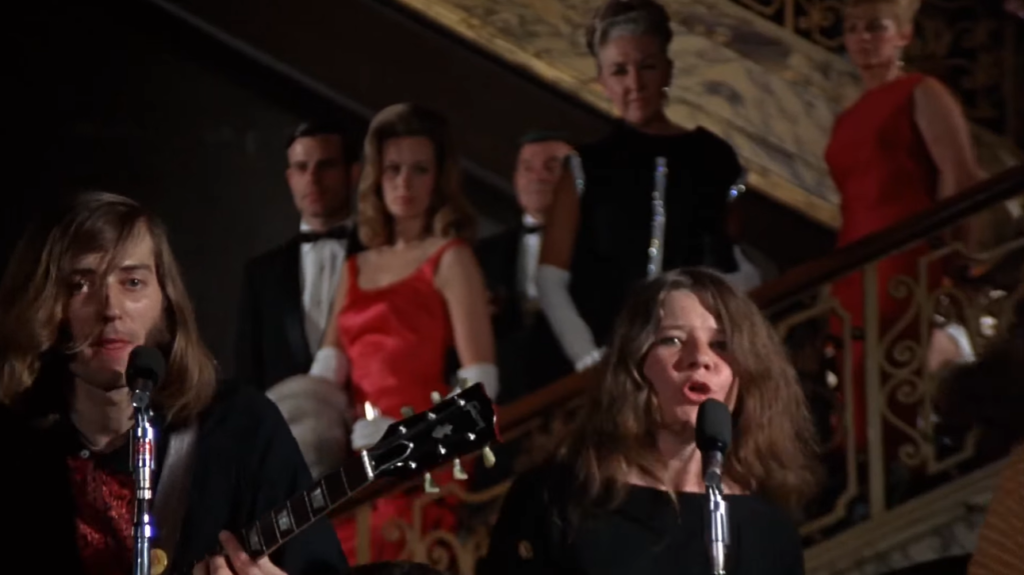
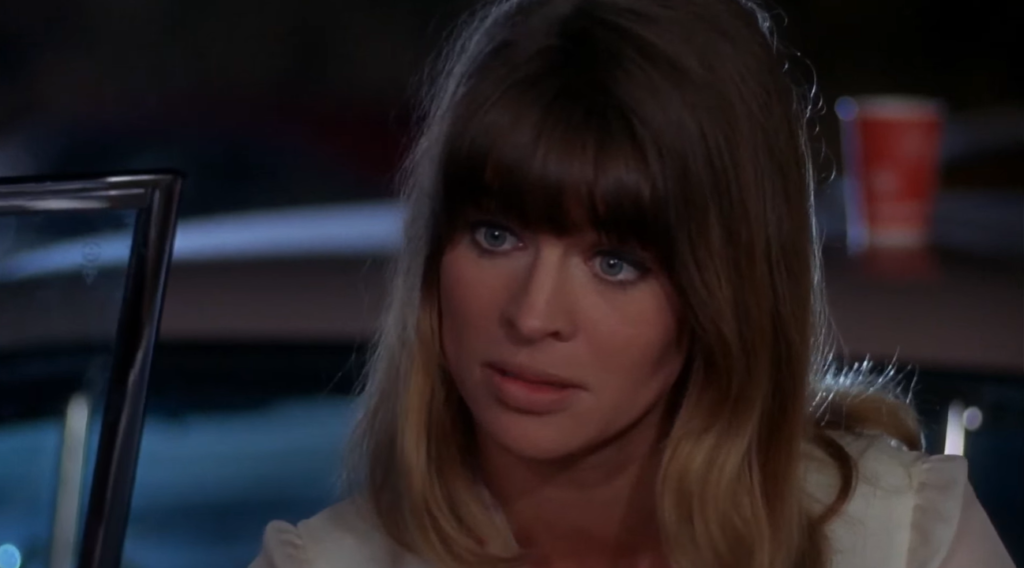
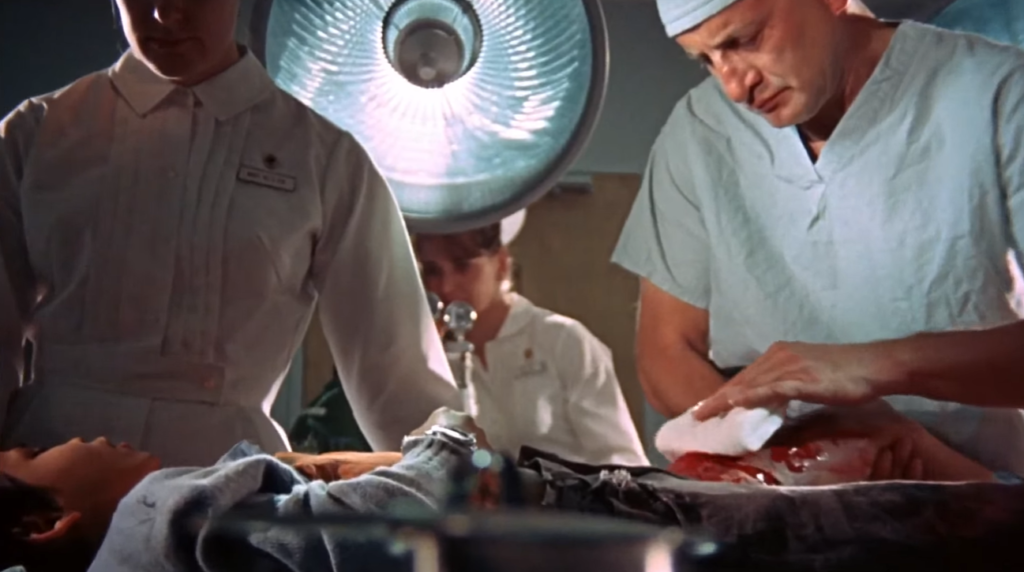
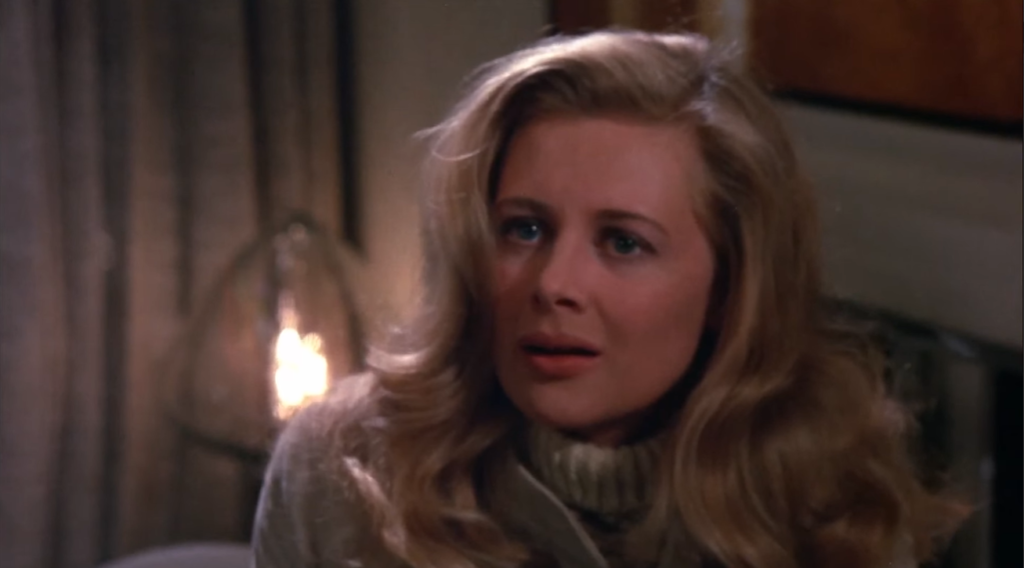
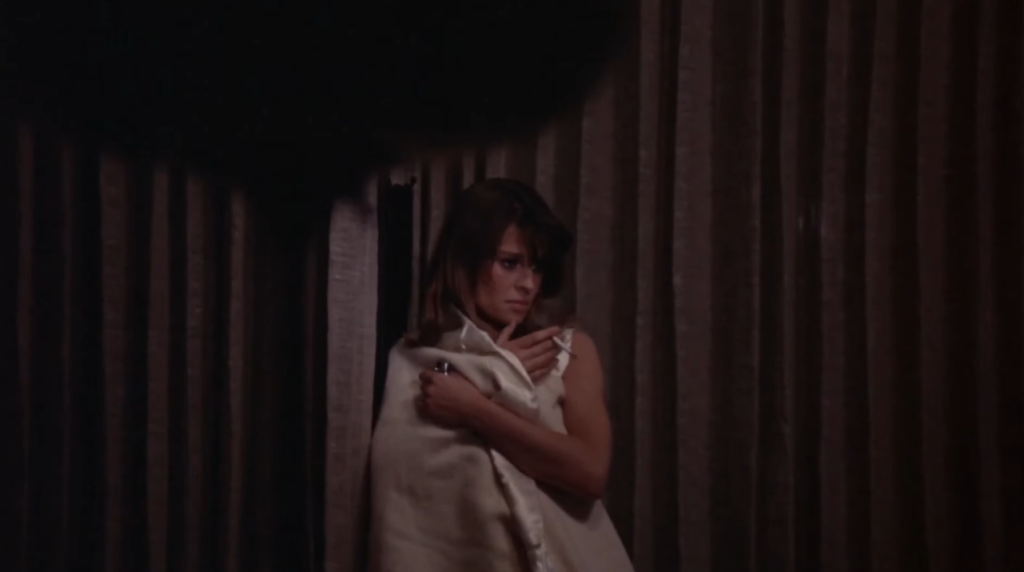
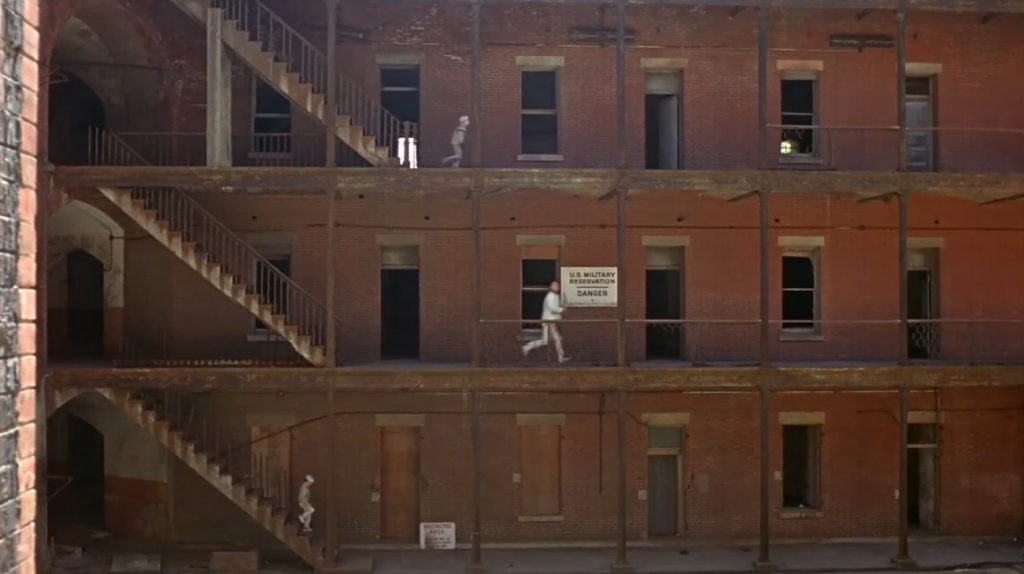
One thought on “Petulia (1968)”
Not must-see.
I totally agree with this statement: “Peary’s analysis is a fascinating one, but presumes one will read quite a bit of depth into this array of messed up protagonists.” To me, he seems to be extracting on a more personal level – and may very well have loved the movie for that reason.
Myself, I find it a pretentious bore. ~except for, as noted, “Archie’s argument with ex-wife Polo (Shirley Knight)”. It’s funny how sometimes a single scene in a film can reveal how inferior the rest of the film is.
As well… perhaps on a subconscious level, director Lester may have known there was ‘very little there there’ and opted for “fragmentary filmmaking” to disguise how dull the story is, and maybe even make it seem cool.
Lester was quoted as saying, “It’s a very real film about two people trying to get through to each other.” You could have fooled me. I thought it was pointless drivel.
Still, it does have its fans – though I think that’s due to people who aren’t all that critical of quintessential-’60s Christie. (She’s certainly lovely.)